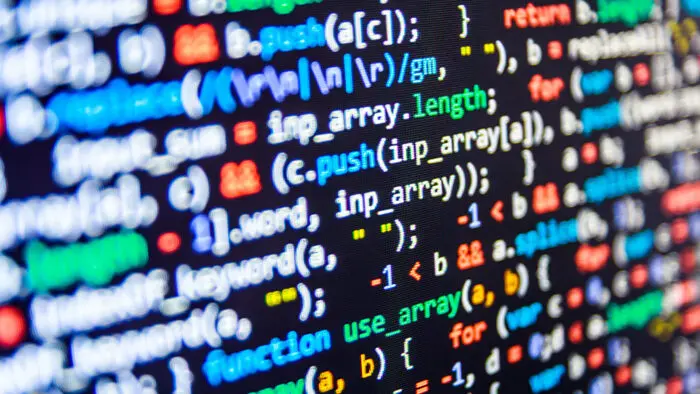Python, a programming language which was conceived in the late 1980s by Guido Van Rossum, has witnessed humongous growth, especially in the recent years due to its ease of use, extensive libraries, and elegant syntax.
How did a programming language land up with a name like ‘Python’?
Well, Guido, the creator of Python, needed a short, unique, and a slightly mysterious name and thus decided on “Python” while watching a comedy series called “Monty Python’s Flying Circus”.
If you are curious on knowing the history of Python as well as what is Python and its applications, you can always refer to the first chapter of the Python Handbook, which serves as your guide as you start your journey in Python.
We are moving towards the world of automation and thus, there is always a demand for people with a programming language experience. When it comes to the world of algorithmic trading, it is necessary to learn a programming language in order to make your trading algorithms smarter as well as faster.
It is true that you can outsource the coding part of your strategy to a competent programmer but it will be cumbersome later when you have to tweak your strategy according to the changing market scenario.
In this article we cover the following:
- Choosing a Programming Language
- Why use Python for Trading?
- Popularity of Python over the years
- Benefits and Drawbacks of Python in Algorithmic Trading
- Python vs. C++ vs. R
- Applications of Python in Finance
- Coding in Python for Trading
- Installation Guide for Python
- Popular Python Libraries aka Python Packages
- Working with data in Python
- Creating a sample trading strategy and backtesting in Python
- Evaluating the sample trading strategy
- How to get started with Python in Trading
Choosing a Programming Language
Before we understand the core concepts of Python and its application in finance as well as using Python for trading, let us understand the reason we should learn Python.
Having knowledge of a popular programming language is the building block to becoming a professional algorithmic trader. With rapid advancements in technology every day, it is difficult for programmers to learn all the programming languages.
One of the most common questions that we receive at QuantInsti is
“Which programming language should I learn for algorithmic trading?”
The answer to this question is that there is nothing like a “BEST” language for algorithmic trading. There are many important concepts taken into consideration in the entire trading process before choosing a programming language:
- cost
- performance
- resiliency
- modularity and
- various other trading strategy parameters
Each programming language has its own pros and cons and a balance between the pros and cons based on the requirements of the trading system will affect the choice of programming language an individual might prefer to learn.
Every organization has a different programming language based on its business and culture.
- What kind of trading system will you use?
- Are you planning to design an execution based trading system?
- Are you in need of a high-performance backtester?
Based on the answers to all these questions, one can decide on which programming language is the best for algorithmic trading.
Why use Python for Trading?
Python has become a preferred choice for trading recently as Python is open-source and all the packages are free for commercial use.
Python has gained traction in the quant finance community. Python makes it easy to build intricate statistical models with ease due to the availability of sufficient scientific libraries.
Some popular Python libraries are:
- Pandas,
- NumPy,
- Matplotlib,
- Scikit-learn,
- Zipline,
- TA-Lib, and more.
First updates to Python trading libraries are a regular occurrence in the developer community. There are countless communities out there.
Some of the frequented Python communities are:
- Python meetups – There are about 1,637 Python user groups worldwide in almost 191 cities, 37 countries and over 860,333 members.
- There are over 1.3 Million out of the 2 Million repositories on Github for Python
- There are over 1.7 Million questions about Python being answered on StackOverflow
And we have not even considered the vast majority of local communities for Python out there via various portals, groups, platforms, forums, etc.
Quant traders require a scripting language to build a prototype of the code. In that regard,
- Python has a huge significance in the overall trading process
- Python finds applications in prototyping quant models particularly in quant trading groups in banks and hedge funds
“Python is fast enough for our site and allows us to produce maintainable features in record times, with a minimum of developers,”
– said Cuong Do, Software Architect, YouTube.com.[2]
Why do quant traders prefer Python for trading?
Using Python for Trading helps them:
- build their own data connectors,
- execution mechanisms,
- with backtesting,
- risk management and order management,
- walk forward analysis, and
- optimization testing modules.
Algorithmic trading developers are often confused about whether to choose an open-source technology or a commercial/proprietary technology. Before deciding on this it is important to consider:
- the activity of the community surrounding a particular programming language,
- the ease of maintenance,
- the ease of installation,
- documentation of the language, and
- the maintenance costs.
Stay tuned for the next installment in which Viraj Bhagat will discuss the popularity of Python over the years.
Visit QuantInsti to learn more about Python https://blog.quantinsti.com/python-trading/.
Disclosure: Interactive Brokers
Information posted on IBKR Campus that is provided by third-parties does NOT constitute a recommendation that you should contract for the services of that third party. Third-party participants who contribute to IBKR Campus are independent of Interactive Brokers and Interactive Brokers does not make any representations or warranties concerning the services offered, their past or future performance, or the accuracy of the information provided by the third party. Past performance is no guarantee of future results.
This material is from QuantInsti and is being posted with its permission. The views expressed in this material are solely those of the author and/or QuantInsti and Interactive Brokers is not endorsing or recommending any investment or trading discussed in the material. This material is not and should not be construed as an offer to buy or sell any security. It should not be construed as research or investment advice or a recommendation to buy, sell or hold any security or commodity. This material does not and is not intended to take into account the particular financial conditions, investment objectives or requirements of individual customers. Before acting on this material, you should consider whether it is suitable for your particular circumstances and, as necessary, seek professional advice.











![[Gamma] Scalping Please [Gamma] Scalping Please](https://ibkrcampus.com/wp-content/smush-webp/2024/04/tir-featured-8-700x394.jpg.webp)



